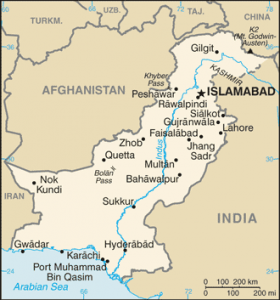In April, Pakistani health officials reported the first death due to Naegleria fowleri infection of the year in Tando Allah Yar in Sindh province.

Today, a second fatality was reported in a 55-year-old Karachi resident, according to a local media account.
Naegleria fowleri (commonly referred to as the “brain-eating amoeba”), is a microscopic amoeba which is a single-celled living organism. It can cause a rare and devastating infection of the brain called primary amebic meningoencephalitis (PAM). The amoeba is commonly found in warm freshwater such as lakes, rivers, ponds and canals.
Infections can happen when contaminated water enters the body through the nose. Once the amoeba enters the nose, it travelsto the brain where it causes PAM (which destroys brain tissue) and is usually fatal. Infections usually occur when it is hot for prolonged periods of time, which results in higher water temperatures and lower water levels.
Naegleria fowleri infections are rare. Most infections occur from exposure to contaminated recreational water. Cases due to the use of neti pots and the practice of ablution have been documented.
The practice of ablution is included in Yogic, Ayurvedic, and Islamic traditions. Within the Islamic faith, ritual nasal rinsing is included in a cleansing process called “wudu” or “ablution.” It is usually performed several times a day in preparation for prayer, according to the Centers for Disease Control and Prevention.
You cannot be infected with Naegleria fowleri by drinking contaminated water and the amoeba is not found in salt water.
Initial symptoms of PAM usually start within 1 to 7 days after infection. The initial symptoms may include headache, fever, nausea, or vomiting. Other symptoms can include stiff neck, confusion, loss of balance, seizures, and hallucinations. After the start of symptoms, the disease progresses rapidly.
Related:
- Naegleria fowleri: An interview with Dr Jennifer Cope
- Florida DOH encourages safe swim habits including Naegleria prevention
- Miltefosine and the 4th Naegleria fowleri survivor: Talking with Profounda CEO, Todd MacLaughlan
- Balamuthia: Profounda receives Orphan Drug Designation to use miltefosine for treatment

